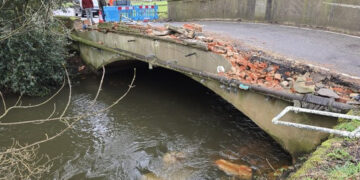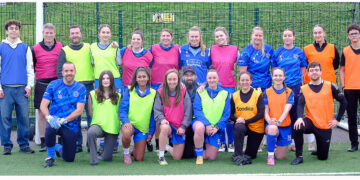OWNERS of assistance dogs will be able to let the train take more of the strain thanks to a new scheme.
All rail companies have joined forces to help people with disabilities or mental health problems.
It includes issuing a laminated card that will helps explain why the assistance dog needs to sit under an unoccupied seat.
The cards can be particularly useful on services where it’s not possible to book a seat in advance.
Jacqueline Starr, chief executive officer of the Rail Delivery Group, said: “We’ve all seen guide dogs when they are out and about supporting their visually-impaired owners.
“It’s less well-known that many of our other four-legged friends have their own skills and character quirks that help people with a range of support needs.
“These include people with physical disabilities and those with autism, epilepsy or other complex health conditions.
“Many of these conditions are not visible so we want to make life easier for the people whose daily lives they affect.
“It will also help fellow passengers adjust to the sight of assistance dogs doing their job while apparently relaxing under a spare seat.”
The cards have been tested by Assistance Dogs UK, a charity that helps train them, can raise awareness for customers who need to avoid canines, be it for allergies, cultural reaons or because they are afraid of them.
Vicky Worthington, development manager with Assistance Dogs UK, said: “More than 7,000 people rely on a highly trained assistance dog from one of our member charities alone. “We’re delighted to support this scheme and very pleased to see that rail companies are making it easier for disabled people and people with medical conditions to travel while educating the public about how these wonderful animals change – and even save – lives.”
Among those who use an assistance dog is Fiona Bower. She has been a wheelchair user because of her multiple sclerosis for 12 years and worked with the Rail Delivery Group and Govia Thameslink in developing the scheme.
Fiona said: “Mr Wiz, my registered assistance dog, and I welcome this new initiative which will be of tremendous benefit to all those passengers who, like me, depend on a specially trained dog to care for them.”
















































